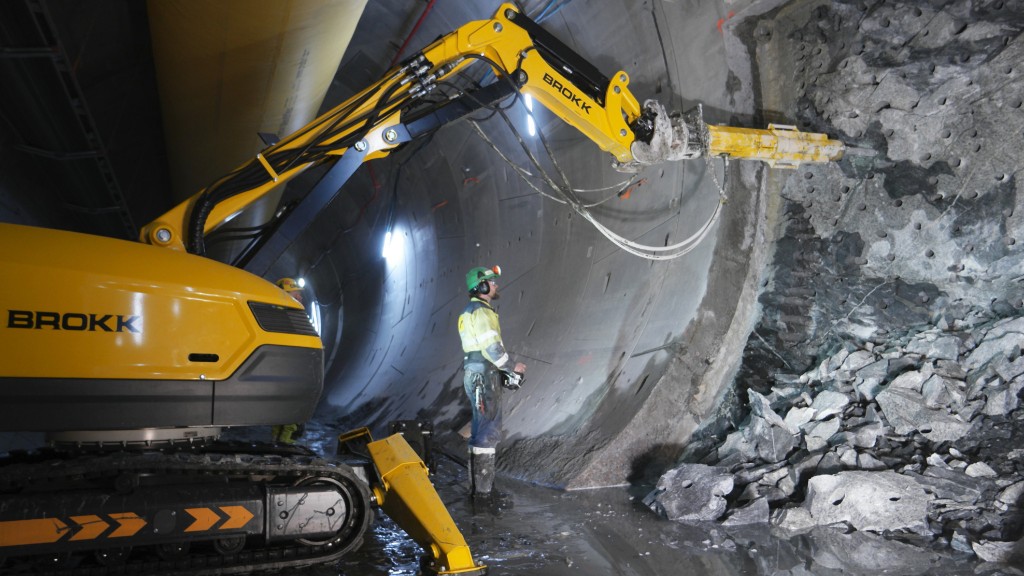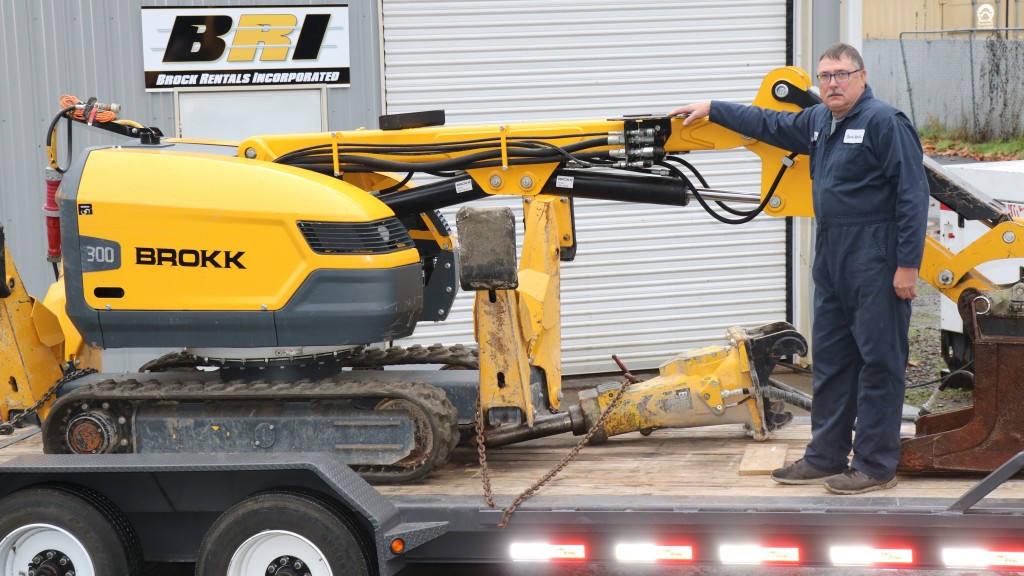Shaft and tunnelling tools from Brokk improve safety in confined space work

Brokk offers a range of attachments suited for shaft and tunnelling applications. The attachments are perfectly matched with Brokk's remote-controlled demolition robots to provide the best possible performance in underground and confined space operations. The range of attachments includes Brokk's BHB hydraulic breaker series, as well as drum cutters, buckets, TEI Rock Drill series and the C20 Rock Splitter series.
"Demolition is often the first thing that comes to mind when people think of Brokk, but our customers prove, time and again, that with the right attachment these machines are capable of so much more," said Lars Lindgren, president of Brokk Inc. "From opening a face to installing rock bolts, Brokk machines provide unparalleled productivity and safety throughout the tunnel development process."
Brokk robots are engineered starting at the tip of the breaker for maximum compatibility. This includes reducing back pressure and optimizing machine oil flow, oil pressure and down pressure to allow for more hydraulic power while using less energy.
The BHB series includes eight breaker models, starting with the 110-pound (50-kilogram) BHB 55 breaker for the compact Brokk 70 and going all the way up to the 3,307-pound (1,500-kilogram) BHB 1500 for the new Brokk 900, which is ideal for heavy-duty tunnel and demolition applications.
Detailed excavation applications such as contouring and trenching can benefit from Brokk's drum cutters. For the Brokk 70, contractors have an option between the BDC 40, with a 15.2-inch (387 millimetre) cutting width, and RT 15-40 model with a cutting width of just 4.7 inches (120 millimetres). The BDC 50 pairs seamlessly with the Brokk 110, 120DII and 170 to provide a cutting depth of 0-1.2 inches (0-30 millimetres) at a width of 18.9 inches (480 millimetres). The BDC 100 works with larger Brokk models — the 200, 300, 500, 520D and 900R. It is 24 inches (610 millimetres) wide with a cutting depth of 0-2.6 inches (0-66 millimetres). The BDC 250 also pairs with the larger Brokk 500, 520D and 900. It offers the deepest cutting depth of the line with 0-3.1 inches (0-80 millimetres) and a width of 26.8 inches (680 millimetres).
Brokk also offers a range of bucket attachments to increase versatility for digging, loading, sorting and separation of materials and debris. Volumes range from 1.4 cubic feet (40 litres) for the Brokk 70 up to 24.7 cubic feet (700 litres) for the 900.
The TEI Rock Drill series is a collaboration between Brokk and TEI Rock Drills. The six drills, with diameters from 1.3-1.7 inches (33-4 millimetres) up to 1.7-3 inches (43-76 millimetres), bring Goliath-sized drilling power in a David-sized package for mining and tunnelling applications. Drill controls are integrated into Brokk's ergonomic remote for easy "one button" operation. The Brokk/TEI combination eliminates fatigue caused by operating the heavy handheld tools, improves overall drilling accuracy and promotes safety by allowing operators to stand farther away from the drilling site. At just under 26 inches long (660 millimetres long), the TE160-100 is the smallest drill attachment from TEI, yet it delivers 35 to 60 foot-pounds of impact energy at 5,000 to 6,500 blows per minute. The drill also produces 100 pound-feet of torque and reaches rotation speeds of up to 250 rpm, which makes it an accurate and faster alternative to jackleg drilling through brick, concrete and rock.
In tunnelling and underground operations, the C20 Rock Splitter series provides contractors with a safe and quiet alternative to explosives and hydraulic breakers. The series works with Brokk 300 models and larger to quickly break up large boulders and solid rock in mining and shaft sinking applications as well as cross passage work in tunnelling. For vertical applications, contactors can choose between the C20 C and C20 V. The C20 H can be used in horizontal applications, while the C20 J offers optimal flexibility, operating both horizontally and vertically. Using a rock splitter, with up to 1,800 tons of force, is quieter, safer and produces fewer vibrations and dust than breakers and explosives. It gives contractors a productive alternative in areas where potentially disruptive demolition techniques are not allowed, such as near hospitals. It also works faster than expanding demolition chemicals, which can take hours.



